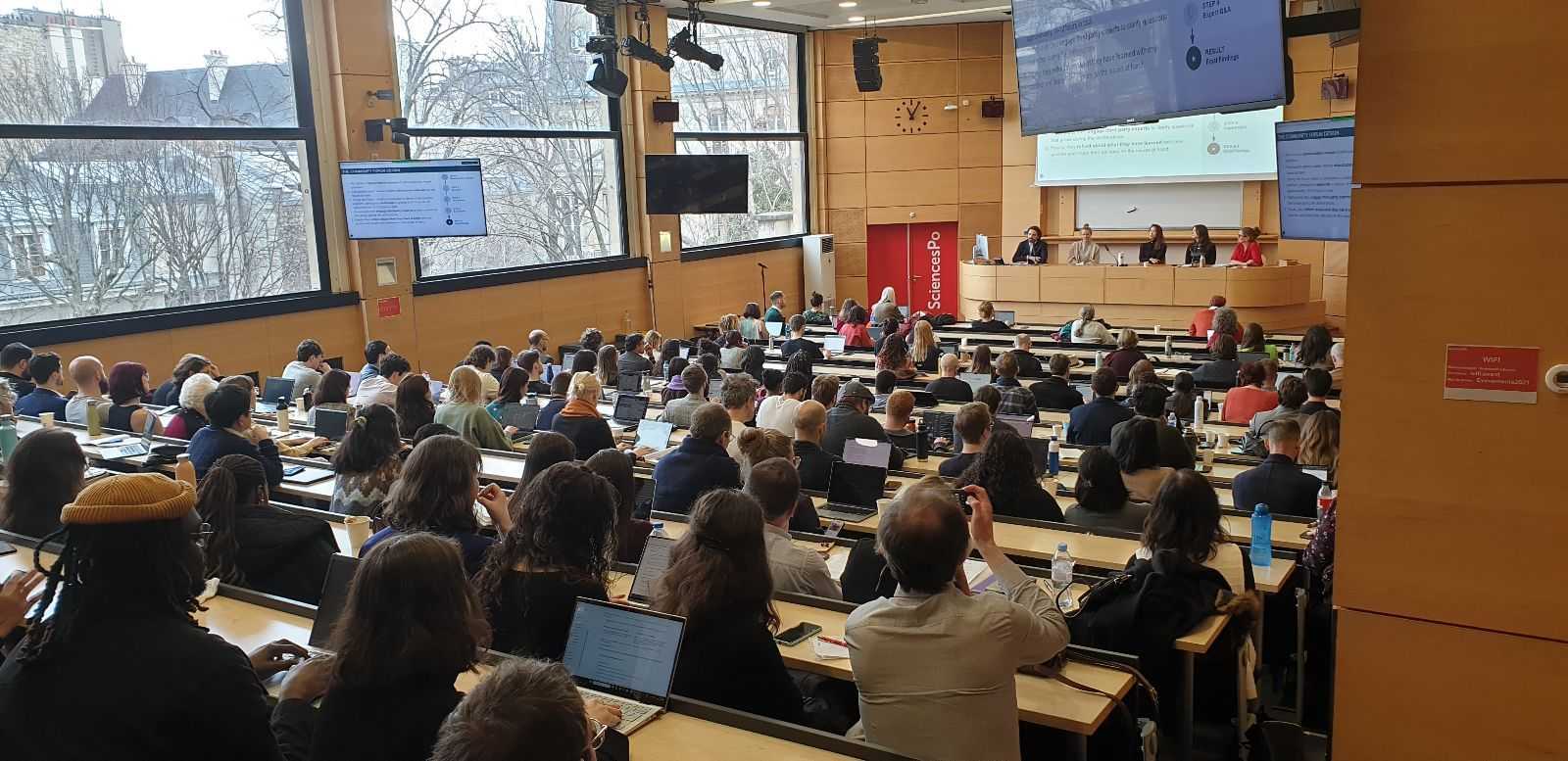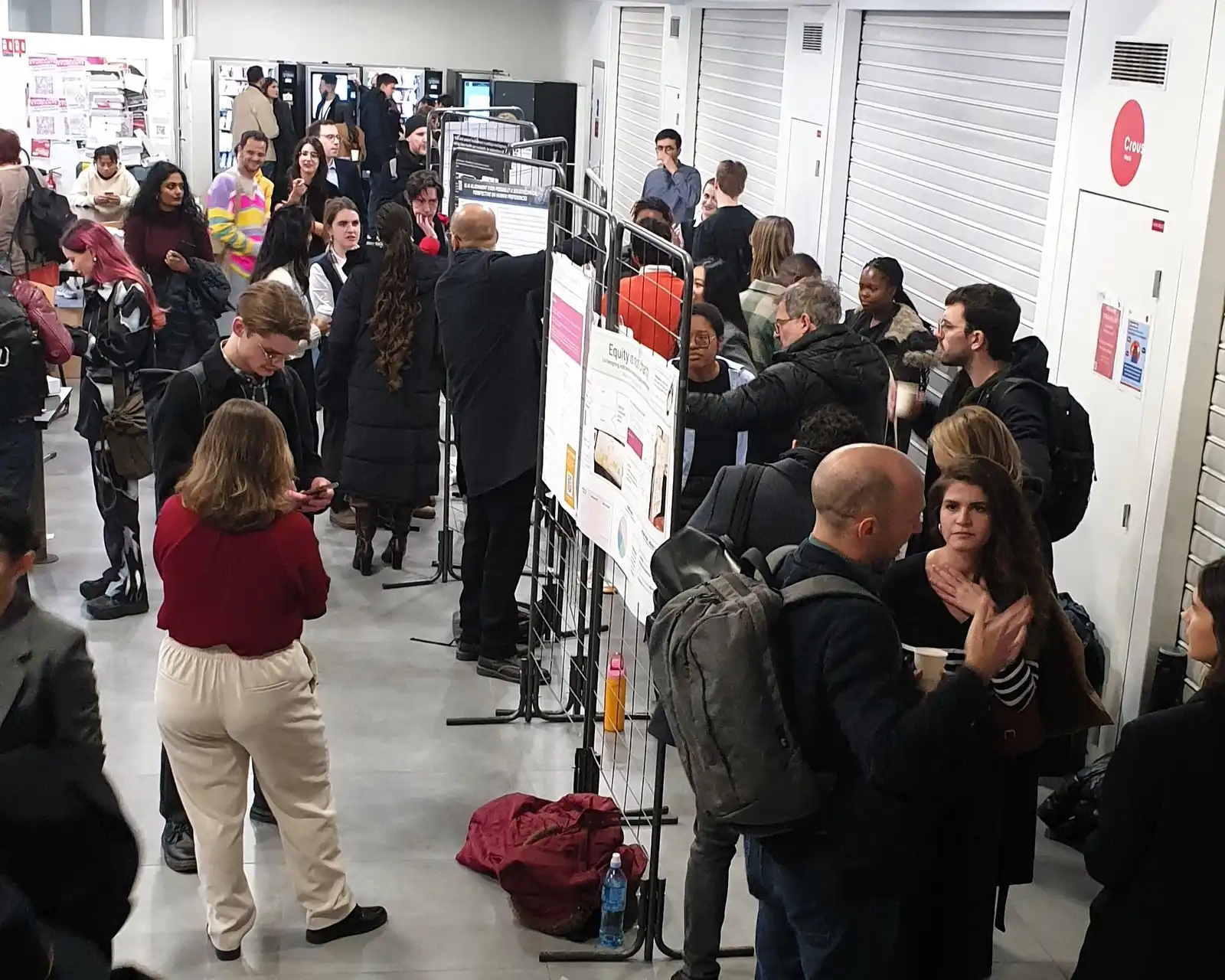Home>Participatory AI Development & Governance: A lookback on PAIRS

08.04.2025
Participatory AI Development & Governance: A lookback on PAIRS
On February 15, 2025, the SciencesPo Tech & Global Affairs Innovation Hub was proud to co-organize the Participatory AI Research & Practice Symposium (PAIRS) with Connected by Data and Data & Society. This landmark event brought together more than 250 researchers, industry leaders, policymakers, and civil society activists at SciencesPo to explore participatory approaches to AI research and governance. Here is a lookback on this highly successful side-event to the AI Action Summit.
The symposium demonstrated exceptional reach, bringing together in a lively conversation many diverse perspectives. It proved to be a significant milestone for the participatory AI research and governance community of practice, with no less than:
- 122 submissions from researchers and practitioners from the five continents
- 16 online presentations prior to the event to ensure global inclusivity
- 38 in-person presentations in Paris
- 13 posters showcasing real use cases
- Over 200 online participants
- Countless fascinating conversations and connections
Bringing together diverse perspectives to design and govern AI solutions
The morning plenary featured fascinating talks from a diverse range of speakers representing, among others: UNDP, UNESCO, Partnership on AI, Oxford University, Cambridge University, King's College London, LSE, ITS Rio, McGill University, University of Toronto, University of Montréal, RMIT University, Namibia University of Science and Technology, Stanford University, Carnegie Mellon University, George Washington University, MIT, Accenture, Meta, Make.org, Ada Lovelace Institute, CARE International, Eticas Foundation, Equiano Institute, AI & Democracy Foundation, as well as many other civil society organizations and independent experts.…
Following these enlightening presentations, participants engaged in dozens of workshops distributed across three concurrent tracks fostering deep discussions on participatory approaches:
- Participatory AI development
- Participatory AI governance
- Participation, Power and Resistance
All of these talks and workshops have been recorded. You can access the recording of your choice through the event's planning or access all of them on the dedicated YouTube playlist.
watch the recording of the PAIRS sessions
PAIRS was about more than just presentations and workshops – it was a seminal moment about building an international and diverse community of practice. The historic 27 rue Saint-Guillaume was buzzing with conversations, particularly around the poster exhibit documenting real-world use cases from numerous countries.

Many experts who presented at PAIRS also contributed to a collection of opinion pieces for Tech Policy Press, gathering their complementary and slightly kaleidoscopic perspectives. We are grateful to Tech Policy Press for amplifying this collective set of powerful, diverse, and inspiring voices.
access the thought-provoking short articles
Looking Forward: towards a PAIRS India
Following this resounding success, we are committed to nurturing this community and organize other PAIRS events designed to bring together a diverse, interdisciplinary community of activists, policymakers, researchers, and industry leaders, to keep facilitating the crucial dialog between practitioners and to share successful use cases and good practices.
Before a potential PAIRS side-event to the upcoming AI Summit hosted by India at the end of the year, the first "PAIRSx" event happened online on March 31st, on the margins of the Global AI Summit on Africa in Kigali. This follow-up event focused on participatory approaches to the development and governance of AI at the service of African societies.
Check out the program and contributions of Pairsx Africa
(credits: Sciences Po)
Got a question? Interested to be involved in the Hub?
If you wish to contact the team, feel free to email us at innovationhub.psia@sciencespo.fr
